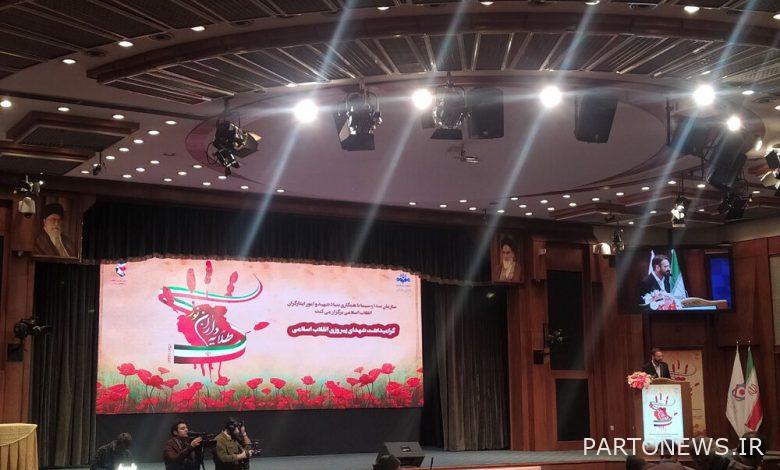Honoring the Martyrs of the Revolution on TV/Let’s not change the place of martyrs and executioners – Mehr news agency Iran and world’s news

According to Mehr reporter, the commemoration ceremony for the martyrs of the victory of the Islamic Revolution was held today on the 18th of Bahman in the presence of Peyman Jabali, President of Radio and Television, Amir Hossein Ghazizadeh, President of the Martyrs and Martyrs Foundation, and a group of officials and families of the martyrs, at the Radio and Television Conference Center.
In this ceremony, Peyman Jabali, the head of the radio station, greeted the families of the martyrs and said: We hope that all of us will receive the intercession of the children and loved ones whose photos adorn this ceremony.
He added: The Islamic revolution was not a one-year path that started in January 2016 and ended in February 2018. It didn’t even start from 1942, but it started from the beginning of history and continues continuously.
Jabali clarified: We have witnessed the martyrdom of security martyrs or martyrs defending the shrine and martyrs of terror, nuclear, etc., until yesterday and the day before today. Among them, the martyrs of 15 Khordad 42 to Bahman 57 are definitely more oppressed than the rest of the martyrs, and their names are rarely mentioned. We are not familiar with most of these martyrs.
He addressed the martyrs of the revolution and said: “If we have dignity and respect in the country today, it is because of your blessing and your sacrifice and loyalty.”
Jabali clarified: If today the young generation is faced with the question, why did you make a revolution? Silence is not allowed. The young generation should see and touch those who made the revolution. We must be able to narrate history.
Referring to the making of history by others, the head of the broadcaster said: Those who were waiting for the younger generation to come and start making and distorting history, are not sitting idle. It is also our fault that we have had a short history in narrating history. We failed that the hypocrites who killed 17 thousand of our compatriots are now in a position where unfortunately the young generation does not even understand and know about their crimes.
In the end, Jabali said: I hope we can end these cognitive divisions.
Further, Ghazizadeh, the head of the Shahid Foundation, pointed to popular struggles in Iran and reminded: Iranian people had experienced uprisings for a long time; The Qajar era during the constitutional movement and during the national oil movement is one of these examples, but every time due to the gap that occurred between the intellectual movement of the time and the religious movement, the people’s movement was marginalized.
He added: The prominence of Imam Khomeini’s movement was in the fact that the people did not give up on their Imam during the struggle.
Referring to the production of cultural works, Ghazizadeh reminded: Nations that do not have historical memory are doomed to repeat their experiences, and many times the dominant events have been repeated for us in history. We should not let the place of martyr and executioner change.
He added: These require extensive cultural work. We are cooperating with our friends in the Ministry of Culture, especially Mr. Jabali, whether in publishing books or in drama and film work, and a strong movement has begun.
Ghazizadeh clarified: When we remember the martyrs of the revolution, we must explain why for the young generation, which is the question of our youth today. I hope that with some kind of unity, we can make up for the lags that we have.
In this ceremony, the living family of Amir Qavidel, Seyyed Ali Mousavi Garmaroudi, Reza Ruigiri, the family of Martyr Bahnar, the family of Martyr Asadullah Lajordi, Sina Vahad, the writer, Hojat al-Islam Seyed Hamid Rouhani, Mohammad Hassan Zouragh, the family of Mohammad Hassan Farahbakhshian were honored.

